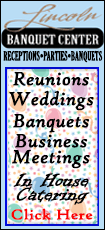|
 The unlicensed vendors keep a sharp eye out for customers, but
seem barely concerned about police. That could soon change. The unlicensed vendors keep a sharp eye out for customers, but
seem barely concerned about police. That could soon change.
Thousands of Los Angeles street vendors, many of them unauthorized
immigrants in a city that has increasingly sought to show support to
migrants, may soon be forced out of parks where they peddle ice
cream, toys, trinkets, dresses hung on tree branches and other
items.
"It's been quite a while since the police bothered us," De Leon, 54,
an immigrant from El Salvador, said in Spanish. "The ones that
bother us are park rangers, because sometimes people call them. But
thank God, we're still here."
The Los Angeles City Council two weeks ago voted 13-2 to draft an
ordinance that would ban unlicensed vending and other commercial
activities in parks, even as the city works to legalize vending on
city sidewalks.
Officials say the move to legalize sidewalk vending is intended to
allow sellers to legitimately earn a living and ensure food and
goods they sell are safe. They draw the line at parks where
residents have complained that merchandise clutters pathways and
green spaces.
In 2005, officials suspended a city rule against park vending
because of litigation against the city challenging rules in the
Venice Beach area, where the city has allowed street vendors only to
sell works of art or free expression.
 As a result of the lifting of enforcement at parks, vendors found a
sanctuary in recreation areas from harsher enforcement on sidewalks.
But officials say later court rulings in their favor over sales at
Venice beach, whose famed boardwalk crammed with street performers
and artist stalls draws tourists from around the globe, gave the
city a legal basis to re-apply the ban in parks.
The parks ordinance is expected to be approved when it comes back
before the council in late July.
Officials estimate the city, despite outlawing the practice and
frequently issuing citations, has 50,000 street vendors, including
those in parks, selling everything from rugs by the side of the road
to hot dogs from pushcarts.
WORK FOR IMMIGRANTS
At least half the vendors are unauthorized immigrants, said Janet
Favela, an organizer with the Los Angeles Street Vendor Campaign.
Teo Gonzales, 35, who was pushing an ice cream cart in Griffith Park
near where De Leon and Segura sell goods, said he likes being his
own boss and that, without legal immigration status, other jobs are
unavailable.
[to top of second column] |

Each month, Gonzales sends up to $300 to his son in Mexico, he said.
Even though rules against vending in parks were technically
suspended, rangers keep it in check.
At the Griffith Observatory on Mount Hollywood, where tourists peer
through a telescope that is touted as the most publicly used
telescope in the world and take in panoramic views, there were no
vendors on a recent sunny afternoon.
Kevin Regan, assistant general manager in the parks department, said
rangers might keep vendors away from the observatory by asking them
to move along.
While officials have objected to vending in parks, they say another
concern is large-scale commercial activity, everything from workout
classes to pony rides, that have a foothold in parks. All would be
prohibited under the ordinance.
"Everyone assumes if the activity is in a park that it's run by the
city. There's a liability," said Los Angeles City Councilman Bernard
Parks.
But community groups are asking why city officials, who have been
holding meetings to consider regulating and licensing street
vendors, are moving to stop similar sales in parks.
"The idea that they'd move forward to ban vending in one area and
legalize it in another area is ridiculous," said Becky Dennison,
co-director of the Los Angeles Community Action Network.
(Editing by Cynthia Johnston and Andrew Hay)
[© 2015 Thomson Reuters. All rights
reserved.]
Copyright 2015 Reuters. All rights reserved. This material may not be published,
broadcast, rewritten or redistributed.
 |